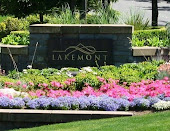The Seattle-area housing market's big plunge
Here's a snapshot of the market on its way up in 2005, near its peak in 2007, and three years after the fall in 2010.
Back in 2005, houses were selling like smartphones. Prices were climbing.In some months you could count the number of homes repossessed in King County on your fingers and toes — with a pinkie or two to spare. Prices peaked in 2007, but sales already had begun to tail off as the bow wave of the Great Recession slammed into Seattle. In 2010 the real-estate market still was struggling in its backwash, a new report from the Northwest Multiple Listing Service indicates.
Sales? Down 50 percent in King County from five years ago.
Prices? Still falling, although not as rapidly as in 2008 and 2009.
Here's a snapshot of the market on its way up in 2005, near its peak in 2007, and three years after the fall in 2010.
Repossessed homes by month
Experts say peak still to come. Last September, lenders repossessed 819 homes in King County, more than in all of 2006 — in King, Snohomish, Pierce and Kitsap counties combined.
Source: RealtyTrac
Total value of all houses sold in 2010 was 47 percent less than 2005's total.
Median sale price down 26 percent from 2007 peak, region's steepest drop.
Has experienced region's most dramatic drop in sales since 2005: 52 percent
Median price lower than 2005, but not down as much as Snohomish, Pierce counties
Accounted for 14 percent of 2010 King County home-sales dollar volume; largest in region.
2010 FACTOIDSThe median price of houses sold in King County was highest on the Eastside — $520,000 — and lowest in Southwest King County, $237,147.
Nearly 14 percent of houses sold in King County had two or fewer bedrooms. Eight percent had five or more bedrooms.
May and June — when federal tax credits for homebuyers were expiring — were the busiest months for home sales. January and February were the slowest months.
A total of 371 King County condos sold for more than $500,000. Almost all were in Seattle (250) or on the Eastside (118).
The median price of the 218 houses that sold on Mercer Island was $834,500, highest in the region.
Twelve houses on the San Juan Islands sold for more than $1 million. On Whidbey and Camano islands a total of eight fetched that price, while three houses sold for $1 million-plus on Vashon Island.











































